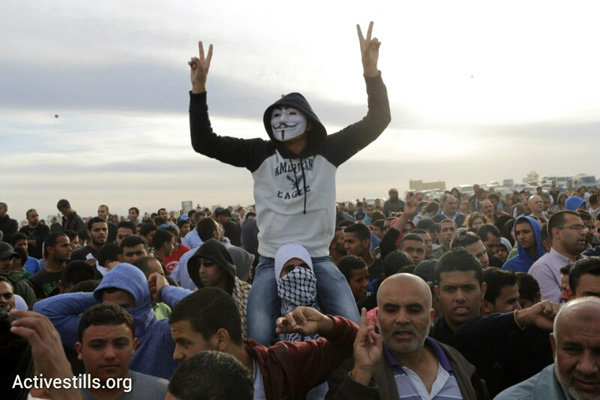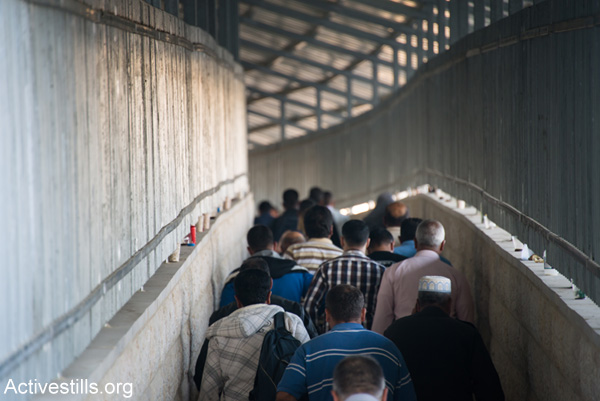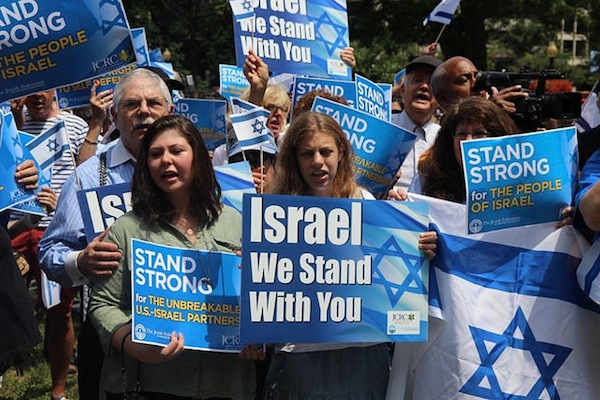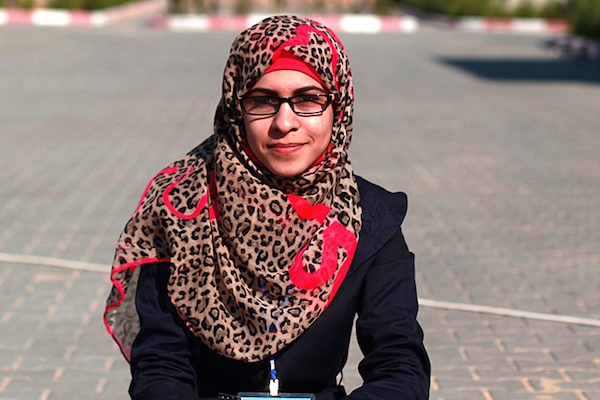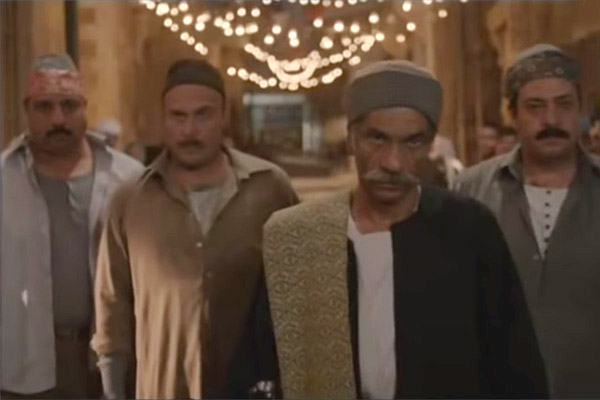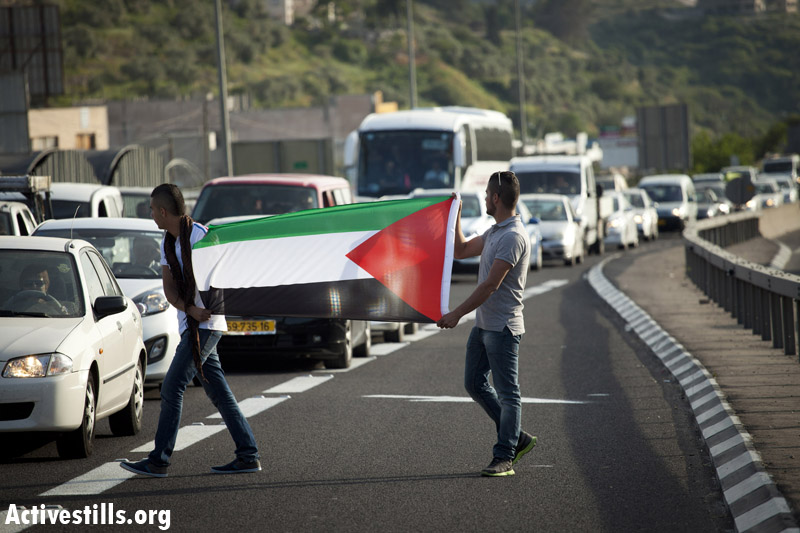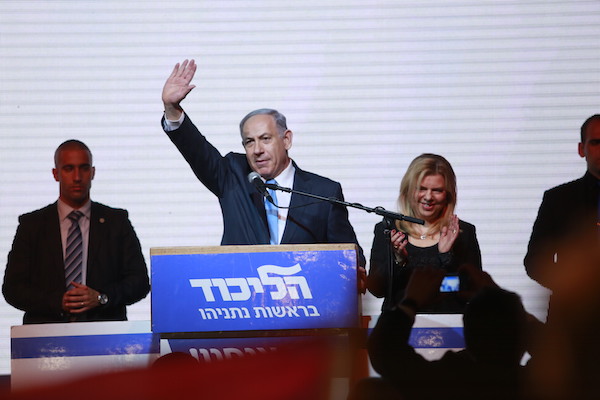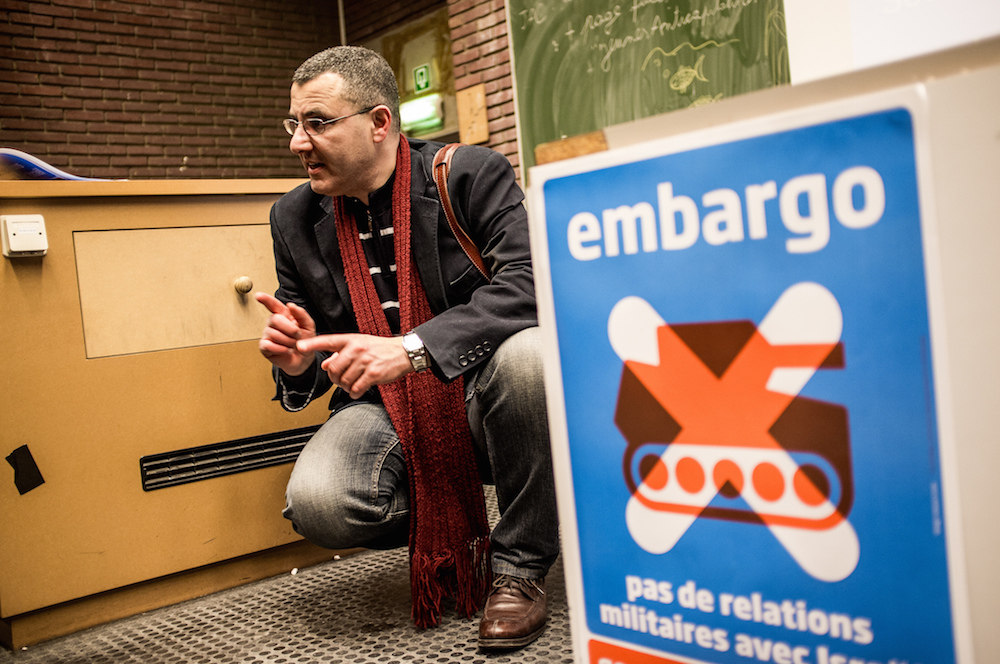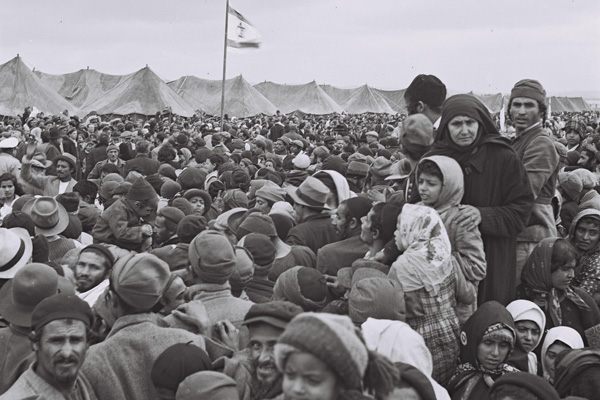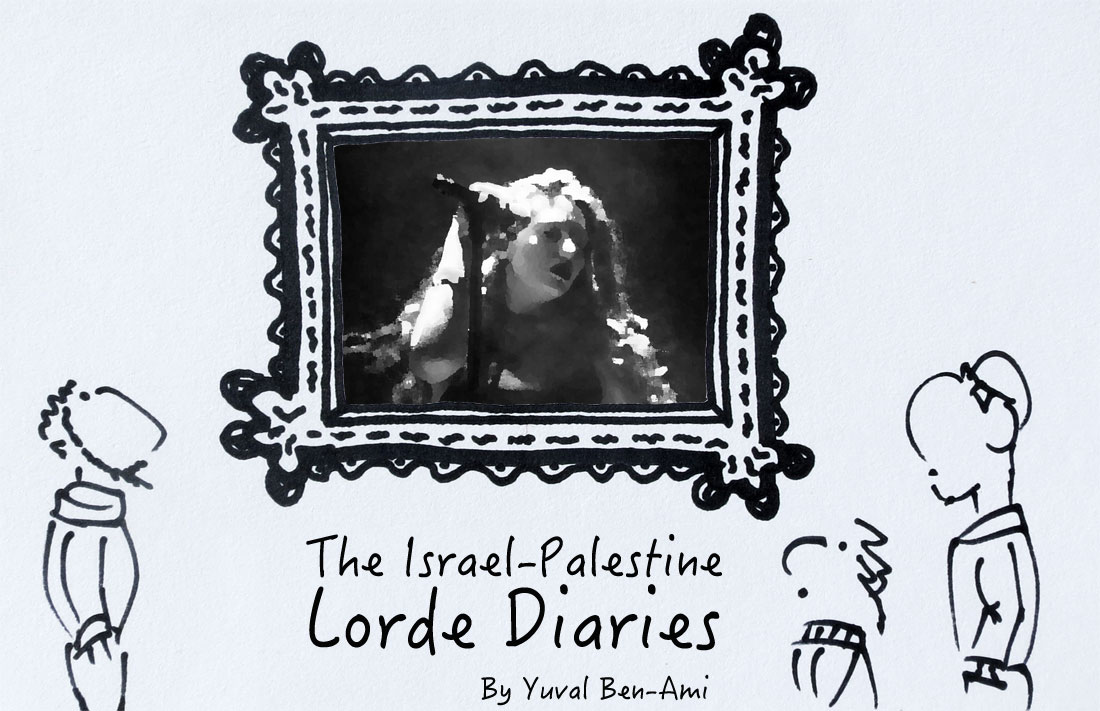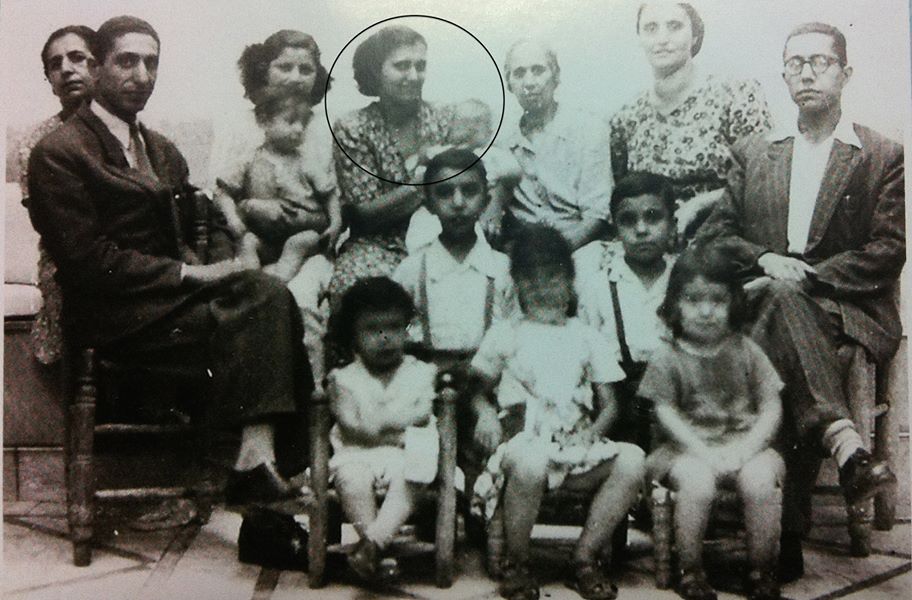As 2015 comes to a close, +972 Magazine’s editors and bloggers look back at the year that was, and share the articles that most resonated with them – in no particular order.
By +972 Magazine Staff
Meet the new generation of Palestinians in Israel
To most Jewish Israelis they don’t have names or faces. At worst they are rioters and stone-throwers waving Palestinian flags; at best they are a discriminated-against minority. Henriette Chacar sat down with four young, prominent, politically active Palestinian citizens of Israel to discuss their demands, their identity, how they are different than the generations that preceded them, and their hopes for Palestinian politics in both Israel and Palestine.
+972 blogger and Jewish-American-Israeli journalist Mya Guarnieri never had an easy time living in Israel. She quickly found herself feeling that she was on the wrong side of the Green Line so she decided to move to Bethlehem. But navigating Palestinian society as a Jew, living with the haunting tribulations of the occupation and trying to make work a relationship of which neither society approved didn’t turn out to be much easier. Join Mya in her six-part autobiographical series, which might just be one of the best things you read this year. Start reading part one.
Saying goodbye to Reham Dawabshe
One of the biggest news stories of this past year became more personal for Samah Salaime than she could have ever imagined as she found herself becoming closer and closer to the Dawabshe family, even as three of them lay in the hospital fighting for their lives after an arson attack on their home. After spending hours upon hours at their bedside, especially that of the mother, Reham, Samah found herself a part of the story: “Fate brought me to Reham Dawabsha’s hospital bed after she and the rest of her family were burned alive in their home. We had never met before, but something kept bringing me back to see her.” (Read also: Translating a Palestinian family’s grief for Netanyahu)
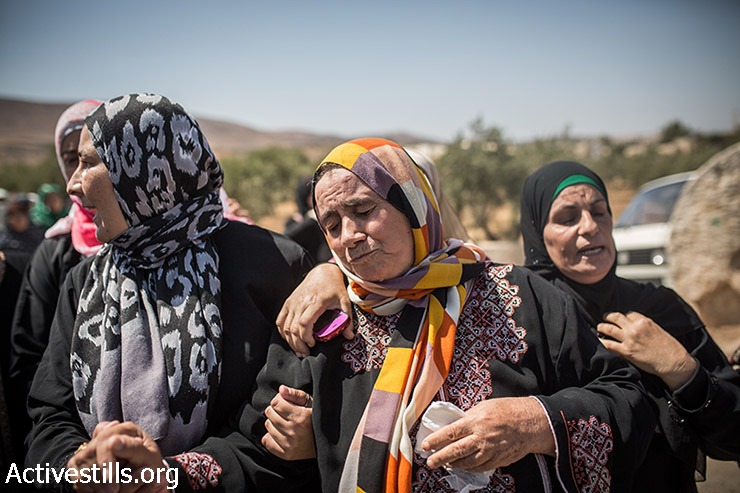
The youth of East Jerusalem have lost all hope
East Jerusalem erupted back in 2014 following the brutal murder of 16-year-old Muhammad Abu Khdeir at the hands of three Israeli Jews. A year on, the eastern part of Israel’s “eternal, undivided capital” looks more divided than ever. Israeli policies have a disproportionate effect on the youth in a city that lacks classrooms, where students cannot talk openly about their feelings, and where the municipality refuses to meet with Palestinian parents. Orly Noy spoke to the head of the parents’ council about why young Palestinian have lost all hope.

The boycott movement was on the Israeli consciousness more than ever this year, resulting in a growing number of concerted efforts to fight it both from the government and Israeli civil society. Even the most liberal Israeli Zionists expressed great concerned that BDS directly challenges Israel’s very character — and not only the occupation. Michael Schaeffer Omer-Man had a basic reminder for them: the Palestinian-led boycott, divestment and sanctions movement is not about keeping Israel Jewish: it’s about ensuring a just outcome that guarantees basic rights for everyone.
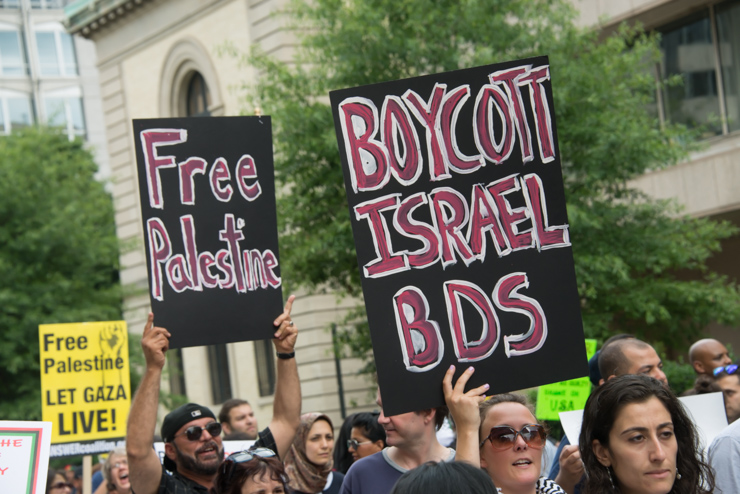
The case against ‘hasbara’: Explaining ourselves to death
The Israeli obsession with showing ‘our side’ of the story not only guzzles financial and human resources — it is a conscious attempt to distract the world from the occupation. Dahlia Scheindlin explains why she must speak out against Israel’s go-to tactic of distracting from the legitimate debates over its policies.
‘The little village that could’: 10 years of nonviolent struggle in Bil’in
Bil’in, the flagship village of Palestinian popular struggle that demonstrated to the world the spirit of nonviolent protest, marked a decade of tear gas, night raids, and tragedy in their fight against the occupation. Haggai Matar, who has been active in Bil’in’s protests from the beginning, returned to the village to discuss with the main organizers their biggest successes and failures, and how they built a space where Palestinians, Israelis and internationals could stand together against the most powerful army in the Middle East.
Voices without borders: Four young writers from Gaza tell their stories
When it comes to Gazans, we all too often find ourselves talking about them without them. We usually associate Gaza with war, blockade, and poverty, rather than love, personal tragedy, hope and writing. But that’s precisely what the ‘We Are Not Numbers’ writing project hopes to accomplish: to finally giving young Gazans an opportunity to present themselves to the world. Natasha Roth spoke to four of the participants about how they want the world to hear their stories — in their own words, through the voices that were so sorely lacking during last year’s war and its aftermath.
‘License to Kill’: Examining how the IDF investigates its own
Yasser a-Tmeizi was shot to death while in IDF custody after being arrested for not having his ID on him. Zakaria Daragma was shot in the back and killed as he was walking back to his taxi near an army post outside Nablus. Ihab Islim was sniped to death as he stood on the roof of his home chatting with his family. None of the soldiers responsible for killing these innocent men were ever brought to justice. John Brown and Noam Rotem opened up the case files to examine how the army gives its soldiers a license to kill.
In Sisi’s Egypt, the Muslim Brotherhood are the new Jews
Large swathes of the Jewish and Arab worlds were fascinated by an Egyptian television series that told the complicated story of Egyptian Jews at the time of Israel’s founding. Lisa Goldman weaves together the show’s storyline and her experience reporting in Egypt in order to tell an intriguing story of the political, social and religious changes that have transformed Egypt — in 1948 and in 2015.
When will Israel stop seeing Palestinians as a ‘demographic threat?’
In a post-Holocaust world, the Jewish community worldwide viewed Israel as a country that needed to remain majority Jewish — where they would not be threatened by the domination and racism of others, as has been the case for centuries. The terrible irony is that in its desire to escape Jewish history as a persecuted minority, Israelis became an oppressive majority obsessed with racial control. This, Amjad Iraqi writes, makes it impossible for Israeli to view the Palestinians as anything but an existential problem, even those it accepts as Israeli citizens.
Israel elected a non-democracy
Israelis woke up on the morning of Wednesday, March 18 to discover that they had elected the most right-wing government in the country’s history. But it’s not that simple, as Mairav Zonszein succinctly put it: Israelis chose to elect an undemocratic leadership propping up a democratically impaired system. Even if you believe that Israel is democratic, it is impossible to accept that Israelis can democratically decide to continue denying human and civil rights to millions of Palestinians.
The man behind the BDS movement
As the boycott, divestment and sanctions movement grew larger and more powerful this year, its co-founder, Omar Barghouti, has become a target for Israeli demonization. Rami Younis sat down with Barghouti for a rare discussion about BDS’s goals, its recent successes, and increasingly frequent accusations that the boycott movement constitutes anti-Semitism.
The roots of anti-Mizrahi racism in Israel
Believe it or not, after nearly 70 years of anti-Mizrahi discrimination, there are still those in Israel who yearn for complete separation between Jews of European and Middle Eastern lineage. Edo Konrad looks back at the deeply-rooted history of Israel’s racist policies toward ‘Oriental Jews,’ who were viewed as backward and primitive from the moment they began arriving en masse on the country’s shores.
Special Coverage: 15 years since October 2000
Israeli police killed 13 Palestinians during protests inside Israel at the start of the Second Intifada. The killings, for which no one was ever held accountable, are seen as a turning point in the political awareness of an entire generation of Palestinian citizens of Israel. The state, they learned, views them as an enemy population. Fifteen years later, +972 took a look at what happened, and what’s changed since.
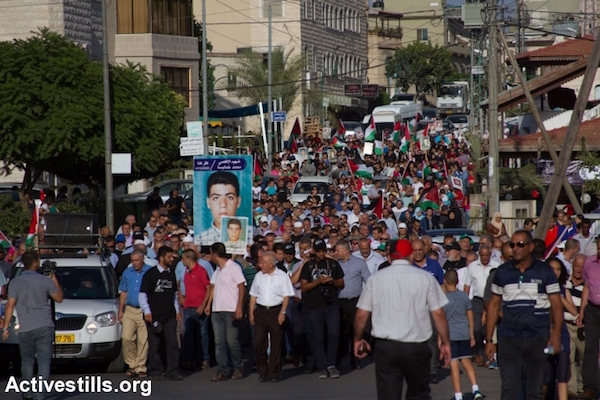
Jewish nationalism and the new Palestinian politics in Israel
Aggressive nationalism was a huge part of Israel’s electoral politics earlier this year. From the social and ethnic divisions aggravated by the Gaza war and murder and kidnappings on both sides, something felt different this year. In an in-depth feature speaking to experts from all sides of the Israeli political map, Dimi Reider set out to understand what has changed in Israeli and Palestinian societies and politics, and what that means for our future together.

What does Lorde have to do with the Israeli-Palestinian conflict?
Forging a bi-lingual, bi-national, Hebrew-Arabic tribute to one’s favorite musicians is no easy task. In 15 captivating installments, Yuval Ben-Ami detailed the agony and ecstasy of bringing people together in this land, even around an apparently neutral subject matter, all in the name of — at least initially — paying tribute to his favorite singer.
There’s way to defeat Jewish terrorism without ending the occupation
It seems that every so often, the Israeli public is surprised by the fact that Jewish terrorism actually exists. This year, the Duma murders and the response by the Shin Bet — including allegations of torture of Jewish minors — are threatening a collision between the security establishment and the far right. Noam Sheizaf reminds us that this is par for the course: “Colonial rule goes hand-in-hand with racism, and that at a certain point the ruling group must somehow justify its own privileges.” As long as the public refuses to challenge the deeply-embedded racism that allows for the control of another nation under the boot of the military, the occupation will not end.
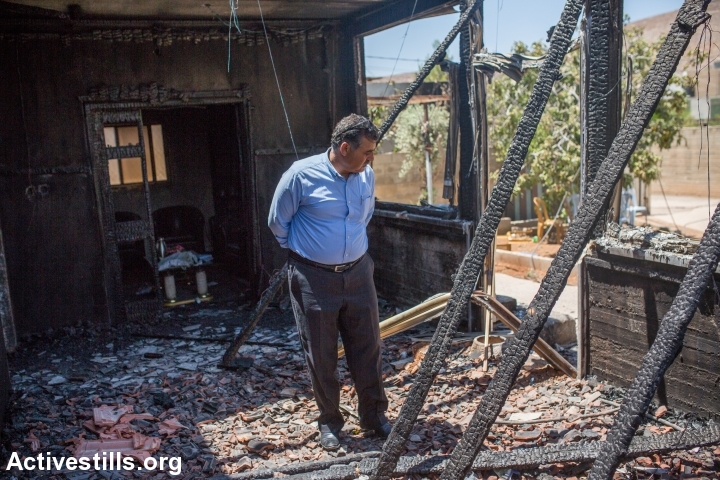
Are Britain’s Jews revolting against the occupation?
Something is changing inside the British Jewish community. In a year when British Jews said they were less likely to identify as Zionists, and the leader of a top communal organization announced he was leaving his post in order to speak more freely against Israeli policies, Larry Derfner says it’s a long time coming: “When I see how mortally frightened the Israeli and pro-Israeli establishment is of this movement, I say – maybe something is brewing here.”
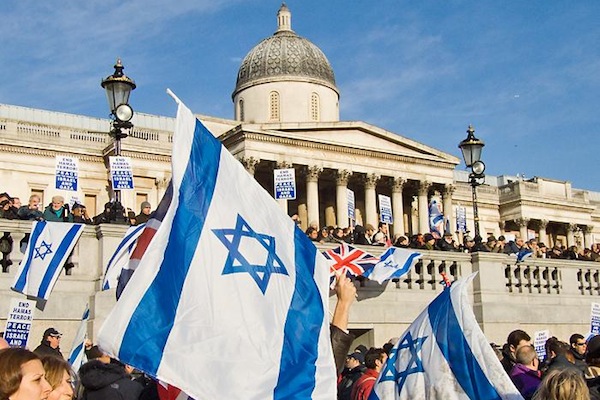
Why Israeli peace groups simply refuse to talk about the Nakba
It’s 2015 and Israeli peace groups still refuse to reckon with their past and talk about the mass dispossession of Palestinians in 1948. Sixty-seven years after the Nakba, Tom Mehager urges the Israeli Left to take a brave step toward understanding the roots of the conflict. Without that, he says, there will be no room for real reconciliation.

Yemenite Children Affair: Families of the kidnapped speak out
Between the years 1948 and 1952, thousands of babies, children of mostly Yemenite immigrants to the newly-founded State of Israel, were allegedly taken away from their parents and given up for adoption to Ashkenazi families. Fifty years later, the third generation of Yemeni immigrants to Israel are breaking the silence and digging up the stories of the traumatized families.

